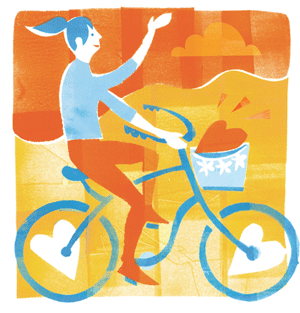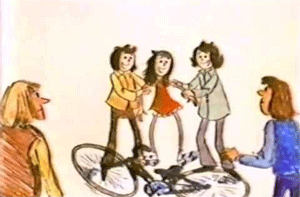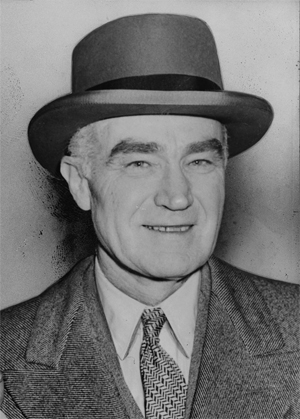by Nicole Daedone
Tricycle Magazine
Winter 2009
NOTICE: THIS WORK MAY BE PROTECTED BY COPYRIGHT
YOU ARE REQUIRED TO READ THE COPYRIGHT NOTICE AT THIS LINK BEFORE YOU READ THE FOLLOWING WORK, THAT IS AVAILABLE SOLELY FOR PRIVATE STUDY, SCHOLARSHIP OR RESEARCH PURSUANT TO 17 U.S.C. SECTION 107 AND 108. IN THE EVENT THAT THE LIBRARY DETERMINES THAT UNLAWFUL COPYING OF THIS WORK HAS OCCURRED, THE LIBRARY HAS THE RIGHT TO BLOCK THE I.P. ADDRESS AT WHICH THE UNLAWFUL COPYING APPEARED TO HAVE OCCURRED. THANK YOU FOR RESPECTING THE RIGHTS OF COPYRIGHT OWNERS.

©Michael S. Wertz
I grew up an only child in suburban Los Gatos, California. One of my closest friends, Maria, came from a large, warm, rambunctious Chilean family. I envied the love that seemed to surround her. Maria’s most cherished possession was her bicycle. She rode it everywhere and took very good care of it. She had such a passion for that bike that she learned everything about how it worked and what it needed, and eventually got a job repairing bikes for other people. The love she felt for her bike made it glow—made it seem like the most desirable object on earth.
I wanted that same feeling. In fact, I wanted to feel even more of it than she did. I figured that if I bought a better bike than hers, my bike would glow even more. So I begged my mom to buy me one that was top-of-the line. But somehow the glow eluded me. I rarely rode it, and its presence in my garage began to feel vaguely reproachful, a thorn in my side. I almost came to hate it. In my mind, this was definitely the bike’s fault.
One day, Maria’s beloved bike was stolen. She borrowed mine and rode it everywhere. To my amazement, it began to have the same magical glow I had so envied in her old bike. Naturally, I wanted it back. But once I got it, I still didn’t really feel like riding it, and it soon resumed its accusatory sulk in my garage. It refused to glow for me.
A lot of people approach looking for love as I approached bike shopping. We want a top-of-the-line model. We have a list of desirable qualities and imagine that the glow of desire will arise when we find someone who possesses those qualities. If love is absent from our lives, we may believe it is because we have not yet encountered someone sufficiently lovable. We are expecting our love to be activated by the object of desire.
My bike didn’t satisfy me because a bike was not what I truly wanted. It was a symbol of what I found so enviable in my friend: the way she was so rich in love that even inanimate objects were animated by it. She had a power to connect to her world that I seemed to lack. I imagined I could attain that inner state by imitating its outward form. A burgeoning spiritual materialism was at play: I tried to make a physical possession the source of my love, rather than finding the source in the love itself.
Our knee-jerk reaction to desire is to focus all our efforts on obtaining whatever it is we think we want. While that is happening, we experience the feeling of desire and the object of desire as inseparable. Had you asked me, “What is the true nature of your desire?” I would have responded, “I want a bike.” So long as we are in hot pursuit of the object, it appears as simple as that. Rather than feeling the pure burn of desire, we get caught in what the Buddha called tanha, in craving the object of our desire, believing we must have it to be happy. Tanha translates roughly to “thirst.” We think we are thirsting for an object—for the person or the bike. But what we actually desire is intimacy—the hydration of direct experience saturating our cells.
We believe that love is to be found within another person. But, in truth, love is found in the animating quality of our attention. In Buddhist practice, we discover that mindful attention can reveal a deeper truth in whatever object we are paying attention to. The same is true in romantic love. When we use our attention to touch and open the deeper truth in a person, we not only catalyze the experience of love, we become love. The source of love is revealed to be within us; we no longer have to go looking for it somewhere outside.
What made any bike that Maria possessed seem so desirable was the very love she lavished on it. The glow was not in the bike itself, but in her relationship to it. Like bicycles, people become more desirable when we are attentive to them. Their most lovable qualities reveal themselves to us only after we have begun to love them. Loving is the polish. Loving draws out their Buddha-nature. Anything and anyone we cherish and care for comes alive with the glow of our attention.
Nicole Daedone is the founder of OneTaste, a company that offers training in man-woman intimate relationships. She is the author of Slow Sex: The Art and Craft of the Female Orgasm.
Brand New Key
by Melanie
I rode my bicycle past your window last night
I roller skated to your door at daylight
It almost seems like you're avoiding me
I'm okay alone but you've got something I need
Well, I've got a brand new pair of roller skates
You've got a brand new key
I think that we should get together
And try them out to see
I've been looking around awhile
You've got something for me
Oh I've got a brand new pair of roller skates
You've got a brand new key
I ride my bike I rollerskate don't drive no car
Don't go too fast but I go pretty far
For somebody who don't drive
I've been all around the world
Some people say I've done alright for a girl
Oh, yeah yeah
Oh yeah yeah
Oh yeah yeah yeah yeah
I asked your mother if you were at home
She said yes, but you weren't alone
Oh, sometimes I think that you're avoiding me
I'm okay alone but you've got something I need
Well, I've got a brand new pair of roller skates
You've got a brand new key
I think that we should get together
And try them out to see
La la la la la la la la
La la la la la
Oh I've got a brand new pair of roller skates
You've got a brand new key
Look What They've Done to My Song, Ma
by Melanie Safka
Look what they've done to my song, Ma
Look what they've done to my song, Ma
It was the only thing I could do half right,
And it's turning out all wrong, Ma
Look what they've done to my song
Look what they've done to my brain, Ma
Look what they've done to my brain
Well they picked it like a chicken bone
And I think that I'm half insane, Ma
Look what they've done to my song
Well, I wish that I could find a good book to live in
Wish I could find a good book
Well, if I could find a real good book
I'd never have to come out and look at
What they done to my song
Everybody sing: [French]
Ils ont changé ma chanson, Ma
Ils ont changé ma chanson, Ma
C'est la seule chose que je peux faire
Et çe n'est pas bon, Ma
Ils ont changé ma chanson
Maybe, maybe it'll all be all right, Ma
Maybe it'll all be OK
Well, if the people are buying tears
I'm gonna be a rich girl some day, Ma
Look what they've done to my song
Look what they've done to my song, Ma
Look what they've done to my song, Ma
It was the only thing I could do half right,
And it's turning out all wrong, Ma
Look what they've done to my song
La la la la la la la la
La la la la la la la la
Well they tied it up in a plastic bag
And they turned it upside down, Oh, Ma Ma
Look at what they've done to my song
Wer hat mein Lied so zerstört, Ma?
Wer hat mein Lied so zerstört, Ma?
Everybody sing in Austrian!



